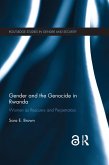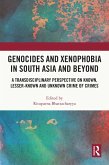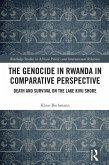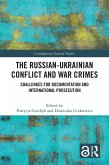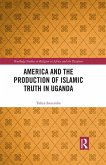It analyzes the conditions necessary for people to engage in intimate violence against their neighbors and family members, asking what inclines "ordinary men" (and women) to join gangs of killers and what role policies, authorities, ideologies, emotions, negotiations and material incentives play in the mobilization for mass atrocities. Comparing genocidal events elsewhere in time and location, the book provides an up-to-date overview of the 1994 events in Rwanda and offers new and surprising insights from previously inaccessible archival records, explaining how to facilitate foreign intervention in the future.
This book is of key interest to scholars and students of African politics, genocide studies and more broadly to security studies, conflicts and conflict-resolution studies, decolonization studies and contemporary and comparative history.
Dieser Download kann aus rechtlichen Gründen nur mit Rechnungsadresse in A, B, BG, CY, CZ, D, DK, EW, E, FIN, F, GR, HR, H, IRL, I, LT, L, LR, M, NL, PL, P, R, S, SLO, SK ausgeliefert werden.



